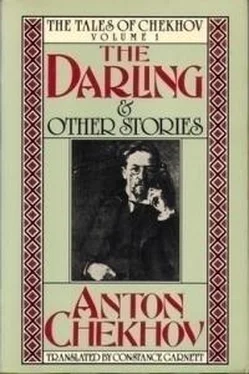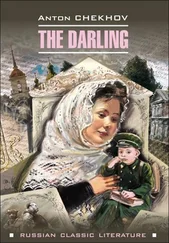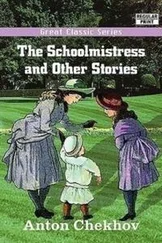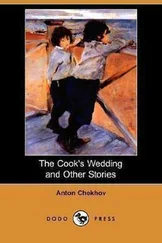Антон Чехов - The Darling
Здесь есть возможность читать онлайн «Антон Чехов - The Darling» — ознакомительный отрывок электронной книги совершенно бесплатно, а после прочтения отрывка купить полную версию. В некоторых случаях можно слушать аудио, скачать через торрент в формате fb2 и присутствует краткое содержание. Год выпуска: 2014, Издательство: epubBooks Classics, Жанр: Классическая проза, на английском языке. Описание произведения, (предисловие) а так же отзывы посетителей доступны на портале библиотеки ЛибКат.
- Название:The Darling
- Автор:
- Издательство:epubBooks Classics
- Жанр:
- Год:2014
- ISBN:нет данных
- Рейтинг книги:5 / 5. Голосов: 1
-
Избранное:Добавить в избранное
- Отзывы:
-
Ваша оценка:
- 100
- 1
- 2
- 3
- 4
- 5
The Darling: краткое содержание, описание и аннотация
Предлагаем к чтению аннотацию, описание, краткое содержание или предисловие (зависит от того, что написал сам автор книги «The Darling»). Если вы не нашли необходимую информацию о книге — напишите в комментариях, мы постараемся отыскать её.
The Darling — читать онлайн ознакомительный отрывок
Ниже представлен текст книги, разбитый по страницам. Система сохранения места последней прочитанной страницы, позволяет с удобством читать онлайн бесплатно книгу «The Darling», без необходимости каждый раз заново искать на чём Вы остановились. Поставьте закладку, и сможете в любой момент перейти на страницу, на которой закончили чтение.
Интервал:
Закладка:
When they reached the town gate there was a faint light of dawn in the sky. Still in silence, Yartsev and Kotchevoy walked along the wooden pavement, by the cheap summer cottages, eating–houses, timber–stacks. Under the arch of interlacing branches, the damp air was fragrant of lime–trees, and then a broad, long street opened before them, and on it not a soul, not a light…. When they reached the Red Pond, it was daylight.
"Moscow—it's a town that will have to suffer a great deal more," said Yartsev, looking at the Alexyevsky Monastery.
"What put that into your head?"
"I don't know. I love Moscow."
Both Yartsev and Kostya had been born in Moscow, and adored the town, and felt for some reason antagonistic to every other town. Both were convinced that Moscow was a remarkable town, and Russia a remarkable country. In the Crimea, in the Caucasus, and abroad, they felt dull, uncomfortable, and ill at ease, and they thought their grey Moscow weather very pleasant and healthy. And when the rain lashed at the window–panes and it got dark early, and when the walls of the churches and houses looked a drab, dismal colour, days when one doesn't know what to put on when one is going out—such days excited them agreeably.
At last near the station they took a cab.
"It really would be nice to write an historical play," said Yartsev, "but not about the Lyapunovs or the Godunovs, but of the times of Yaroslav or of Monomach…. I hate all historical plays except the monologue of Pimen. When you have to do with some historical authority or even read a textbook of Russian history, you feel that every one in Russia is exceptionally talented, gifted, and interesting; but when I see an historical play at the theatre, Russian life begins to seem stupid, morbid, and not original."
Near Dmitrovka the friends separated, and Yartsev went on to his lodging in Nikitsky Street. He sat half dozing, swaying from side to side, and pondering on the play. He suddenly imagined a terrible din, a clanging noise, and shouts in some unknown language, that might have been Kalmuck, and a village wrapped in flames, and forests near covered with hoarfrost and soft pink in the glow of the fire, visible for miles around, and so clearly that every little fir–tree could be distinguished, and savage men darting about the village on horseback and on foot, and as red as the glow in the sky.
"The Polovtsy," thought Yartsev.
One of them, a terrible old man with a bloodstained face all scorched from the fire, binds to his saddle a young girl with a white Russian face, and the girl looks sorrowful, understanding. Yartsev flung back his head and woke up.
"My friend, my tender friend … " he hummed.
As he paid the cabman and went up his stairs, he could not shake off his dreaminess; he saw the flames catching the village, and the forest beginning to crackle and smoke. A huge, wild bear frantic with terror rushed through the village…. And the girl tied to the saddle was still looking.
When at last he went into his room it was broad daylight. Two candles were burning by some open music on the piano. On the sofa lay Polina Razsudin wearing a black dress and a sash, with a newspaper in her hand, fast asleep. She must have been playing late, waiting for Yartsev to come home, and, tired of waiting, fell asleep.
"Hullo, she's worn out," he thought.
Carefully taking the newspaper out of her hands, he covered her with a rug. He put out the candles and went into his bedroom. As he got into bed, he still thought of his historical play, and the tune of "My friend, my tender friend" was still ringing in his head….
Two days later Laptev looked in upon him for a moment to tell him that Lida was ill with diphtheria, and that Yulia Sergeyevna and her baby had caught it from her, and five days later came the news that Lida and Yulia were recovering, but the baby was dead, and that the Laptevs had left their villa at Sokolniki and had hastened back to Moscow.
XIV
It had become distasteful to Laptev to be long at home. His wife was constantly away in the lodge declaring that she had to look after the little girls, but he knew that she did not go to the lodge to give them lessons but to cry in Kostya's room. The ninth day came, then the twentieth, and then the fortieth, and still he had to go to the cemetery to listen to the requiem, and then to wear himself out for a whole day and night thinking of nothing but that unhappy baby, and trying to comfort his wife with all sorts of commonplace expressions. He went rarely to the warehouse now, and spent most of his time in charitable work, seizing upon every pretext requiring his attention, and he was glad when he had for some trivial reason to be out for the whole day. He had been intending of late to go abroad, to study night–refuges, and that idea attracted him now.
It was an autumn day. Yulia had just gone to the lodge to cry, while Laptev lay on a sofa in the study thinking where he could go. Just at that moment Pyotr announced Polina Razsudin. Laptev was delighted; he leapt up and went to meet the unexpected visitor, who had been his closest friend, though he had almost begun to forget her. She had not changed in the least since that evening when he had seen her for the last time, and was just the same as ever.
"Polina," he said, holding out both hands to her. "What ages! If you only knew how glad I am to see you! Do come in!"
Polina greeted him, jerked him by the hand, and without taking off her coat and hat, went into the study and sat down.
"I've come to you for one minute," she said. "I haven't time to talk of any nonsense. Sit down and listen. Whether you are glad to see me or not is absolutely nothing to me, for I don't care a straw for the gracious attentions of you lords of creation. I've only come to you because I've been to five other places already to–day, and everywhere I was met with a refusal, and it's a matter that can't be put off. Listen," she went on, looking into his face. "Five students of my acquaintance, stupid, unintelligent people, but certainly poor, have neglected to pay their fees, and are being excluded from the university. Your wealth makes it your duty to go straight to the university and pay for them."
"With pleasure, Polina."
"Here are their names," she said, giving him a list. "Go this minute; you'll have plenty of time to enjoy your domestic happiness afterwards."
At that moment a rustle was heard through the door that led into the drawing–room; probably the dog was scratching itself. Polina turned crimson and jumped up.
"Your Dulcinea's eavesdropping," she said. "That's horrid!"
Laptev was offended at this insult to Yulia.
"She's not here; she's in the lodge," he said. "And don't speak of her like that. Our child is dead, and she is in great distress."
"You can console her," Polina scoffed, sitting down again; "she'll have another dozen. You don't need much sense to bring children into the world."
Laptev remembered that he had heard this, or something very like it, many times in old days, and it brought back a whiff of the romance of the past, of solitary freedom, of his bachelor life, when he was young and thought he could do anything he chose, when he had neither love for his wife nor memory of his baby.
"Let us go together," he said, stretching.
When they reached the university Polina waited at the gate, while Laptev went into the office; he came back soon afterwards and handed Polina five receipts.
"Where are you going now?" he asked.
"To Yartsev's."
"I'll come with you."
"But you'll prevent him from writing."
"No, I assure you I won't," he said, and looked at her imploringly.
She had on a black hat trimmed with crape, as though she were in mourning, and a short, shabby coat, the pockets of which stuck out. Her nose looked longer than it used to be, and her face looked bloodless in spite of the cold. Laptev liked walking with her, doing what she told him, and listening to her grumbling. He walked along thinking about her, what inward strength there must be in this woman, since, though she was so ugly, so angular, so restless, though she did not know how to dress, and always had untidy hair, and was always somehow out of harmony, she was yet so fascinating.
Читать дальшеИнтервал:
Закладка:
Похожие книги на «The Darling»
Представляем Вашему вниманию похожие книги на «The Darling» списком для выбора. Мы отобрали схожую по названию и смыслу литературу в надежде предоставить читателям больше вариантов отыскать новые, интересные, ещё непрочитанные произведения.
Обсуждение, отзывы о книге «The Darling» и просто собственные мнения читателей. Оставьте ваши комментарии, напишите, что Вы думаете о произведении, его смысле или главных героях. Укажите что конкретно понравилось, а что нет, и почему Вы так считаете.












